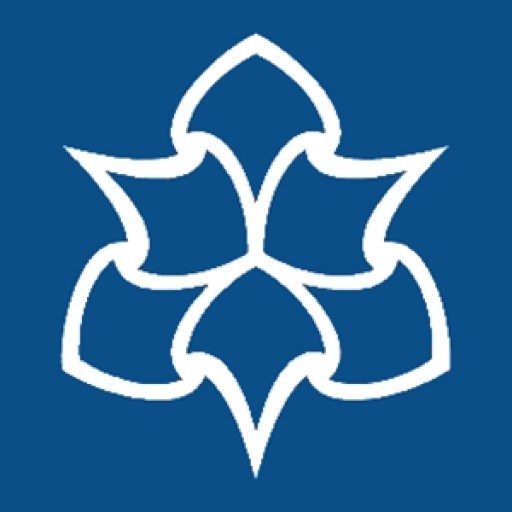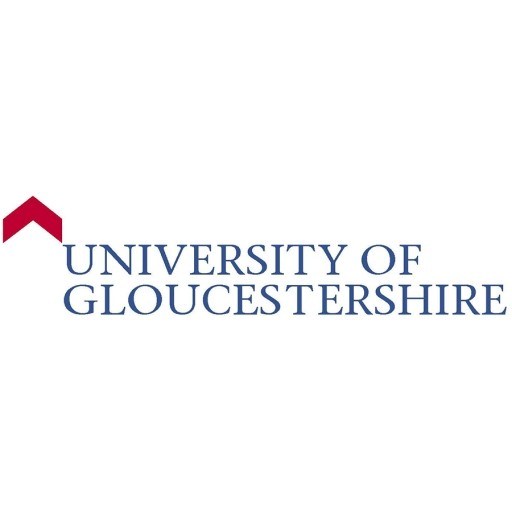Photos of university / #dundeeuni
The Bachelor of Arts (Honours) in Sociology and Politics at the University of Dundee offers a comprehensive interdisciplinary education, equipping students with a deep understanding of social structures, political processes, and contemporary societal issues. This joint honours programme is designed to cultivate critical thinking, analytical skills, and a thorough grasp of both theoretical perspectives and practical applications in sociology and politics. Throughout the course, students explore major themes such as social inequality, political ideologies, governance, human rights, law, and public policy, fostering an awareness of the complex interactions between social and political spheres.
Students benefit from engaging lectures, interactive seminars, and extensive opportunities for research and fieldwork, supported by experienced academic staff renowned for their expertise. The programme encourages active participation in debates on current global challenges, including climate change, migration, and social justice, preparing graduates for careers across sectors such as public policy, international relations, social research, government, NGOs, and academia. The curriculum balances core modules with options allowing learners to tailor their educational experience according to personal interests and career aspirations.
Moreover, the programme emphasizes the development of transferable skills, including communication, teamwork, data analysis, and policy formulation, which are highly valued in diverse professional environments. Students also have access to the university's vibrant campus life and external networks, including internships and community projects, providing invaluable real-world experience. Upon completion, graduates are well-positioned to pursue advanced study or enter the workforce equipped with a robust understanding of the interconnected social and political issues shaping the modern world. The Sociology and Politics (Joint Honours) at Dundee aims to produce informed, critical thinkers ready to contribute meaningfully to society.
The Bachelor of Arts in Arts and Social Sciences at the University of Dundee offers a versatile and interdisciplinary approach to understanding the complexities of human society and culture. This program is designed to equip students with a broad range of critical skills, including analytical thinking, research expertise, and effective communication, preparing them for diverse careers in today’s interconnected world. Throughout the course, students explore various disciplines such as sociology, anthropology, politics, history, and cultural studies, gaining a comprehensive understanding of social processes, cultural dynamics, and political structures. The curriculum encourages active engagement with contemporary social issues, fostering a nuanced perspective on global challenges and community development. Students will participate in a range of learning activities, including lectures, seminars, workshops, and project-based work, promoting collaborative learning and independent inquiry. Practical experiences such as placements, fieldwork, and research projects are integral to the program, enabling students to apply theoretical knowledge to real-world situations. The program also emphasizes the development of essential transferable skills, including critical analysis, problem-solving, and intercultural communication, which are highly valued by employers. In addition, students have the opportunity to specialize in particular areas of interest or pursue a flexible combination of modules across disciplines, tailoring their degree to their career ambitions. The program is supported by a team of experienced academic staff who are engaged in cutting-edge research, ensuring that students are exposed to the latest developments in social sciences and humanities. Graduates from this program often proceed to careers in public policy, community development, media, education, international relations, and other fields requiring a deep understanding of social and cultural issues. They may also continue their studies through postgraduate research or professional training. With its innovative structure and comprehensive content, the Bachelor of Arts in Arts and Social Sciences at Dundee prepares students to become insightful, engaged, and adaptable professionals capable of making meaningful contributions to society.
Minimum Entry Requirements:
Applicants typically require at least 104 UCAS tariff points from their best four qualifications. Offers may vary depending on the specific course and applicant profile. Typically, applicants will have achieved or expect to achieve at least two relevant A-levels, Scottish Highers, or equivalent qualifications. Some programmes may require specific subjects or grades. For example, applicants with Scottish Qualifications will usually need at least Higher BBB, or Advanced Higher CC. International students must demonstrate proficiency in English, often through IELTS at a minimum overall score of 6.0, with no component below 5.5, or equivalent. Additional criteria may include relevant work experience or a personal statement demonstrating interest and motivation for the field of study.
Course Structure and Modules:
The programme generally spans three years of full-time study, with a combination of compulsory core modules and optional modules allowing for specialization within Arts and Social Sciences disciplines. Core modules typically include foundational topics such as Introduction to Social Sciences, Research Methods, and Academic Skills. Students can select optional modules based on their interests, which may include subjects like History, Sociology, Politics, Geography, Media Studies, and Cultural Studies. Each module has a defined credit value, usually 20 or 30 credits per semester, cumulating to a total of approximately 360 credits over the duration of the degree.
Assessment Methods:
Assessment methods employed in the programme include coursework assignments, essays, presentations, group projects, and written examinations. Some modules may also include practical assessments or portfolios. Continuous assessment is combined with final exams to evaluate student understanding and skills. Feedback is provided throughout each semester to support student progress. The programme emphasizes research skills, critical analysis, and independent learning, preparing students for careers or further academic study.
Work Placement and Study Abroad Options:
Students may have the opportunity to undertake work placements as part of their degree, gaining practical experience in relevant fields. These placements are usually arranged through partnerships with external organizations and are designed to complement academic learning. Additionally, optional study abroad semesters or exchanges may be available, allowing students to experience different academic environments and enhance their intercultural competencies. Participation in placements and exchanges is subject to additional application procedures and eligibility criteria.
Graduation and Degree Classification:
Upon successful completion of all modules and assessments, students are awarded a Bachelor of Arts (Honours) or equivalent degree. Degree classification is typically based on the overall weighted average mark, with classifications including First Class Honours, Upper Second Class (2:1), Lower Second Class (2:2), or Third Class Honours. The final classification reflects student performance across all modules throughout the programme, with particular weight given to final-year performance. Additional distinctions or awards may be available for exceptional academic achievement.
Special Features and Additional Requirements:
Certain programmes may include a dissertation or major independent project in the final year, requiring independent research, critical analysis, and presentation skills. Students are expected to demonstrate academic integrity and adherence to university policies. Participation in seminars, workshops, and extracurricular activities related to arts and social sciences is encouraged to enhance learning experience. Some courses may have specific literacy or numeracy prerequisites or require portfolio submissions for applications. No formal pre-requisites are generally required, but strong critical thinking, communication skills, and interest in social sciences are beneficial.
The financing of the Arts and Social Sciences degree programmes at the University of Dundee is structured to support both UK and international students through a variety of funding options. Students are encouraged to explore a range of sources including government-funded grants, scholarships, bursaries, and student loans to help finance their studies. UK students typically benefit from the Student Loan Scheme provided by the UK government, which covers tuition fees and provides maintenance loans to support living costs. These loans are repayable only after graduation when the graduate’s income exceeds a certain threshold, making higher education accessible and affordable. Additionally, the university offers a range of scholarships and bursaries specifically aimed at arts and social sciences students based on academic merit, financial need, or specific merits such as excellence in research or community involvement. International students are often responsible for their tuition fees, but the university provides competitive scholarships and financial aid options, including tuition fee waivers and merit-based awards, to help offset costs. Moreover, students are encouraged to seek external funding sources such as research grants, sponsorships, and family support. Part-time work opportunities on campus and in the local community are also available, allowing students to supplement their income while studying. The university provides financial guidance and support services to help students plan and manage their finances effectively throughout their studies. For postgraduate students pursuing research, specific funding opportunities may include research council grants, industry-sponsored fellowships, and university-specific research scholarships, which are awarded based on academic excellence and research proposals. Overall, the financing options for students in Arts and Social Sciences at the University of Dundee are designed to make higher education accessible and affordable, fostering academic development and enabling students to focus on their studies without undue financial stress.
The Bachelor of Arts in Arts and Social Sciences at the University of Dundee offers students a comprehensive and interdisciplinary understanding of key issues in contemporary society through the study of arts, humanities, and social sciences. The program is designed to equip students with critical thinking, analytical skills, and a broad perspective on cultural, social, and political phenomena. It provides opportunities to explore various disciplines, including history, politics, sociology, media studies, and literature, allowing students to tailor their degree to their interests.
Students benefit from an innovative curriculum that combines theoretical foundations with practical applications. The program encourages developing research skills, effective communication, and the ability to analyze complex issues. Through a mix of lectures, seminars, workshops, and independent study, students engage actively with academic staff and peers. The university's strong emphasis on employability means students gain skills applicable across diverse careers, such as journalism, policy analysis, education, public relations, and cultural management.
The program often incorporates opportunities for study abroad, internships, and collaborative projects, enhancing students’ global outlook and practical experience. Facilities at the University of Dundee, including dedicated libraries, media centers, and research labs, support students’ academic pursuits. The faculty members are active researchers and practitioners across various disciplines, ensuring courses stay relevant and enriched by current insights.
Graduates of the Arts and Social Sciences program at Dundee have gone on to pursue careers in public service, arts organizations, media, research institutions, and further postgraduate study. The program aims to foster critical, informed, and engaged individuals prepared to contribute meaningfully to society. With flexible pathways, including honours options and interdisciplinary modules, students can customize their educational experience to match their academic goals and career ambitions.







